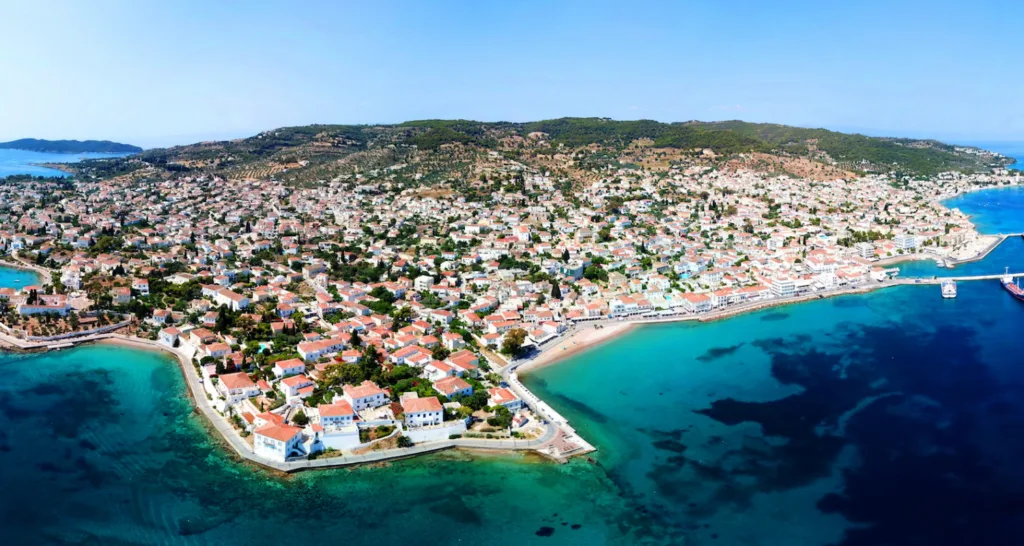Authorities recently discovered a significant land fraud scheme involving 45 plots of public land, spanning 550,000 square metres, on the Greek islands of Hydra, Spetses and Agistri. A group from northern Greece is accused of forging documents to falsely claim ownership of forested and agricultural areas.
The fraud was identified by a private surveyor and the Greek land registry (Ktimatologio). Investigators revealed that the suspects retroactively altered their tax declarations (E9 forms) to create the appearance of long-standing claims predating the land registry process. They supported these false claims with affidavits repeatedly signed by the same individuals, enhancing the illusion of legitimacy.

The group used a single notary for all notarised documents, likely to minimise risk. Instead of legitimate survey data, they relied on publicly accessible tools from Ktimatologio to identify and claim the plots. Exploiting the system’s reliance on self-reported data and the challenges of verifying historical claims, they hoped to avoid detection, particularly as the targeted lands were remote and public.
Greece’s Deputy Minister of Digital Governance Kostas Kyranakis described the scheme as a calculated exploitation of system loopholes and confirmed that legal proceedings are under way. Officials believe the group anticipated the state’s limited resources would leave the areas unguarded.
The suspects face felony charges, which could result in sentences ranging from 10 to 20 years due to the involvement of public property.
Source: Ekathimerini.
